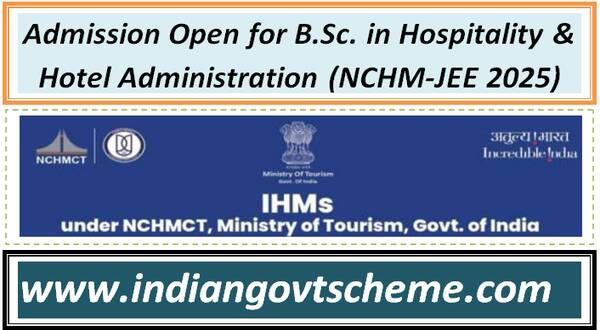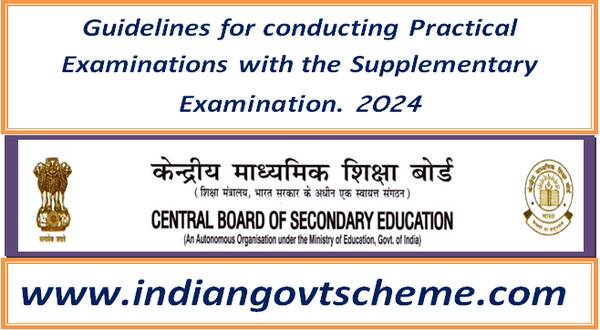CBSE Reading Mission and Initiatives
CBSE/ACAD/JS(AM)/2023
Date: 23.08.2023
Circular No: Acad-99/2023
All the Heads of Schools affiliated to CBSE
Dear Principal
Subject: CBSE Reading Mission and Initiatives
As you may already know, the CBSE Reading Mission was officially launched on September 20, 2021, with the primary objective of fostering a strong culture of reading in all the affiliated schools nationwide. The initiative aligns with the National Education Policy (NEP) of 2020, which underscores the significance of well-equipped school libraries in achieving foundational literacy and numeracy for all children by 2025. The NEP further advocates providing access to high-quality children’s literature to cultivate a reading culture across the country.

Committed to this noble cause, the Central Board of Secondary Education (CBSE) is dedicated to promoting Reading Literacy among learners. In line with the recommendations of NEP 2020, the CBSE has introduced a series of activities that are now available to all CBSE- affiliated schools. These activities aim to facilitate and encourage reading habits among students and create a vibrant learning environment. By incorporating these initiatives, the CBSE aims to instill a lifelong love for reading and equip students with essential literacy skills for their academic and personal growth.
The following are some of the key activities made available under the CBSE Reading Mission for all CBSE-affiliated schools:
1) CBSE Reading App – an innovative digital platform designed to revolutionize the way CBSE students, teachers, and schools engage with reading material. This app is thoughtfully curated to align with the objectives of the National Education Policy (NEP), focusing on nurturing higher-order skills such as creativity, critical thinking, problem-solving, visualization, and idea generation.
Steps to Download and Access the CBSE Reading App:
- 1. Go to your device’s App Store or Play Store.
- 2. Search for “CBSE Reading App by Freadom” in the search bar.
- 3. Install the app on your device.
- 4. Once the installation is complete, open the app.
- 5. Click on the ‘Get Started’ button to create your account or log in if you already have one.
Embrace the future of learning with the CBSE Reading App, and unlock a world of knowledge at your fingertips. Whether you are a student eager to explore new concepts, a teacher looking for supplementary materials, or a school striving to promote a reading culture, this app is your ultimate companion in the journey of education.
2) CBSE Reading Challenge – With a strong commitment to promoting Reading Literacy among students, the Central Board of Secondary Education (CBSE) has been at the forefront of initiatives. One such initiative is the annual CBSE Reading Challenge, which has been successfully organized since 2019. In line with the board’s vision, the CBSE Reading Challenge for the academic session 2023-24 is set to take place during September 2023.
The CBSE Reading Challenge is an exciting opportunity for students in classes 6th to 10th of CBSE affiliated schools to enhance their reading comprehension and critical thinking skills.
Below are the key details of the challenge:
1. Language and Levels: The challenge is available in both Hindi and English languages. It caters to two levels of students: classes 6th to 7th, and classes 8th to 10th.
2. Objectives: The contest aims to engage participants in various reading stimuli and assess their abilities in the following areas:
- Reading with comprehension and accuracy.
- Constructing meaning by retrieving information, relating text with prior knowledge, and integrating information.
- Interpreting information and drawing inferences.
- Reflecting and evaluating to judge the quality and credibility of the text.
3. Two Rounds: The challenge is conducted in two rounds: within school and inter-school.
- Round One (First Stage): All students of classes VI to X in CBSE affiliated schools are eligible to participate in this round. Schools need to register their students for this stage.
- Round Two (Second Stage): Schools registered in the first stage can nominate and register ten students (two best students from each participating class) for the English version of the Challenge.
4.
No Participation Fee: There is no fee for students to participate in any of the two stages of the CBSE Reading Challenge. It is designed as an enrichment activity for students.
5. Speed and Accuracy: The challenge focuses on both speed and accuracy. Students will be presented with a reading challenge paper that includes various reading tasks followed by objective-type questions.
To participate, schools can visit the CBSE website at www.cbseacademic.nic.in for registration. Detailed guidelines and the timeline for the activity are available on the website, providing all the necessary information to conduct the challenge smoothly.
The CBSE Reading Challenge is a fantastic opportunity for students to immerse themselves in the world of reading and improve their comprehension skills. Encourage your students to participate and make the most of this enriching experience!
3) CBSE Budding Authors Program – The National Education Policy (NEP) 2020 highlights the importance of transitioning from “Learn-To Read” to “Read-To-Learn” to foster a deeper understanding and love for languages. Emphasizing interactive and enjoyable language learning, the policy advocates early reading and writing experiences through vibrant conversations. In line with this vision, the CBSE Budding Authors Program is introduced to provide students with a unique platform to engage with diverse stories and enhance their writing skills effectively.
The CBSE Budding Authors Program aims to ignite the creative spark within students by encouraging them to explore the art of storytelling. By writing and submitting short stories under this program, students have the exciting opportunity to express their imagination and ideas, with a chance to see their work published. This enriching experience not only hones their writing abilities but also nurtures their confidence and self-expression.
The program welcomes submissions in both Hindi and English, and students can participate in one of the following three categories:
Category I: Classes 5-6 Word Limit: 500-600 words Category II: Classes 7-8 Word Limit: 600-900 words Category III: Classes 9-10 Word Limit: 1000-1500 words
To participate, schools can visit the CBSE Academic website at www.cbseacademic.nic.in for registration. Detailed guidelines and the timeline for the activity are available on the website.
4) Celebrating the Joy of Reading: P.N. Panicker National Reading Day, Week, and Month – The National Education Policy 2020 has emphasized the significance of reading as a foundational skill for learning. In this context, Public, Schools, and Digital libraries play a crucial role in promoting reading habits among students. One key contributor in this area is the P.N. Panicker Foundation, which honours the late P.N. Panicker, the father of the Library Movement. To celebrate his legacy, 19th June is designated as Reading Day, followed by the Reading Week. What began as a Reading Day Celebration in 1996 has evolved into a mass movement to nurture a culture of reading.
In addition to the foundation’s activities, the Central Board of Secondary Education has also recognized the importance of reading to mark the occasion of International Literacy Day and announced the celebration of Reading Week from 8th September to 14th September. Schools are encouraged to participate in this initiative and promote reading habits among students through a range of engaging activities:
- Encouraging students to explore the joy of reading books of their interest, both from their homes and the internet. Schools can share a list of recommended books and provide links to free downloadable e-books from the school library.
- Organizing online sessions with authors, poets, or storytellers to bring the magic of reading to life and inspire students to read more.
- Conducting online reading sessions where students can share their short stories, book reviews, enact characters from poems/stories, and talk about their inspirations.
- Hosting online LITFEST, with various characters interacting and engaging with the audience.
- Arranging a Read-a-Thon to acknowledge the Fastest Reader of the class.
- Creating Online Book-Buddies, where students can pair up, read a book together, and present their findings to the class.
- Integrating Reading and Fine Arts by reading stories or poems and creating drawings or posters inspired by them.
- Organizing online Readebate Competition, where students debate and defend the actions of characters from the books they have read.
- Encouraging students to create audio stories based on novels or texts they have read.
- Promoting the creation of reading games, puzzles, and riddles.
- Inspiring students to design Story Maps or create comic strips.
- Hosting an online book character costume party, where students can dress up as their favourite children’s book characters and enjoy a party.
- Engaging in round-robin storytelling, where each student contributes a part of the story, creating an intriguing tale.
Reading is a gateway to a world of knowledge, imagination, and personal growth. Celebrating P.N. Panicker National Reading Day, Week, and Month, along with CBSE’s Reading Week, presents a wonderful opportunity for students to develop a lifelong love for reading and unleash their creative potential through the magic of storytelling.
With Best Wishes
Dr Joseph Emmanuel
Director (Academics)
Copy to the respective Heads of Directorates, Organizations and Institutions as indicated below with a request to disseminate the information to all the schools under their jurisdiction:
1. The Commissioner, Kendriya Vidyalaya Sangathan, 18 Institutional Area, Shaheed Jeet Singh Marg, New Delhi-16
2. The Commissioner, Navodaya Vidyalaya Samiti, B-15, Sector-62, Institutional Area, Noida-201309
3. The Secretary, Eklavya Model Residential Schools (EMRS), Ministry of Tribal Affairs, Government of India.
4. The Secretary, Sainik Schools Society, Room No. 101, D-1 Wing, Sena Bhawan, New Delhi- 110001.
5. The Chairman, Odisha Adarsha Vidyalaya Sangathan, N-1/9, Near Doordarshan Kendra, PO Sainik School Nayapalli, Bhubaneswar, Odhisha-751005.
6. The Director of Education, Directorate of Education, Govt. of NCT of Delhi, OldSecretariat,
Delhi-110 054
7. The Director of Public Instructions (Schools), Union Territory Secretariat, Sector 9, Chandigarh-160017
8. The Director of Education, Govt. of Sikkim, Gangtok, Sikkim –737101
9. The Director of School Education, Govt. of Arunachal Pradesh, Itanagar –791 111
10. The Director of Education, Govt. of A&N Islands, Port Blair – 744101
11. The Director of Education, S.I.E., CBSE Cell, VIP Road, Junglee Ghat, P.O. 744103, A&N Island
12. The Director, Central Tibetan School Administration, ESSESS Plaza, Community Centre, Sector -3, Rohini, Delhi
13. The Additional Director General of Army Education, A –Wing, Sena Bhawan, DHQ, PO,New Delhi-110001
14. The Secretary AWES, Integrated Headquarters of MoD (Army), FDRC Building No. 202, Shankar Vihar (Near APS), Delhi Cantt-110010
15. All Regional Directors/Regional Officers of CBSE with the request to send this circularto all the Heads of the affiliated schools of the Board in their respective regions
16. All Joint Secretary/ Deputy Secretary/ Assistant Secretary/SPS / Analyst, CBSE
17. All Head(s)/ In-Charge(s), Centre of Excellence, CBSE
18. In charge IT Unit with the request to put this Circular on the CBSE Academic Website
19. In-Charge, Library
20. The Head (Media & Public Relations), CBSE
21. DS to Chairperson, CBSE
22. SPS to Secretary, CBSE
23. SPS to Director (Academics), CBSE
24. SPS to Director (Information Technology), CBSE
25. SPS to Controller of Examinations, CBSE
26. SPS to Director (Skill Education), CBSE
27. SPS to Director (Professional Examinations), CBSE
28. SPS to Director (Training), CBSE
29. SPS to Director (CTET), CBSE
30. SPS to Director (EDUSAT), CBSE
31. Record File
Director (Academics)
नोट :- हमारे वेबसाइट www.indiangovtscheme.com पर ऐसी जानकारी रोजाना आती रहती है, तो आप ऐसी ही सरकारी योजनाओं की जानकारी पाने के लिए हमारे वेबसाइट www.indiangovtscheme.com से जुड़े रहे।
*****


